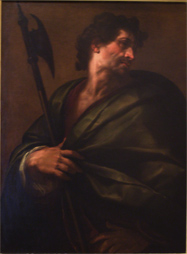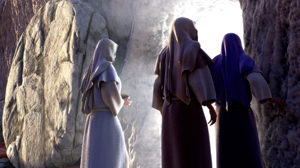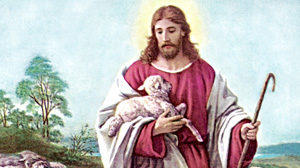Ecclesiastes 1:2-11
Luke 9:7-9
Reflection:
A philosopher named Heraclitus in ancient Greece once stood beside a river and arrived at the thoughtful conclusion that, “You cannot step into the same river twice.” His insight said that change was central to the universe. Everything was changing just as the waters of the river changed constantly as fresh waters seep into the flow. When I studied philosophy, my first reaction: this insight plus twenty-five cents would get you a cup of coffee (coffee was a lot cheaper when I studied philosophy). Then again, perhaps this was a pretty perceptive principle recognized by observing nature. In today’s reading from Ecclesiastes, Qoheleth observes the realities of nature and comes to an entirely opposite conclusion. No matter where you look, no matter what you do, no matter what natural forces are at work, everything is always the same. It is human vanity to think otherwise or pretend we are able to figure it all out. Everything moves in a circle and arrives at the same place.
We also have Herod in the gospel today. He is curious about Jesus and the happenings which have reached his ears but is basically content with questions rather than answers. Maybe his curiosity will be satisfied and maybe not – either is acceptable.
How might we reflect on these two very different readings? We might consider the possibility that they are inviting us to reflect more deeply upon our lives and their meaning while understanding and accepting that we will continue to live in the mystery of our covenant with God. Qoheleth is speaking for an exiled Jewish community who have lived for a very long time in silence with God. In exile, the divine voice grew softer and then non-existent. They could not hear or see God in their ritual lives anymore so they looked to nature only to see realities moving in circles, never to lead anywhere in promise or in hope. They could not find God there, they could not hear God speak and so they wondered where God had gone. All seemed meaningless. To think otherwise was human vanity.
On the other hand, the gospel is teaming with meaning. Everything and everyone is tinged with the electricity of possibilities. The Gospel era is one of promises being fulfilled on a daily basis. Jesus is making the entire collection of Hebrew Scriptures come alive with hope, expectation, love and possibilities of a more intimate life with the Father. The atmosphere is heavy with Divine Presence. Herod recognizes it but cannot make heads or tails out of the message. He is curious but not willing to see and listen with the eyes and ears of one who reflects upon the meaning of his own life. In waiting to see, Herod misses the boat. Jesus is inviting all to embark on the pilgrimage to the Kingdom and Herod remains a bystander.
In our self-reflections, we might want to avoid the pitfalls of both Qoheleth and Herod. By the grace of our baptism, our lives have forever been joined with the Lord Jesus in the journey towards the Kingdom. We walk by faith rather than by sight. Along the way, we are asked to listen to the divine voice as God directs our pathways in lives of love, compassion, caring, justice, humility and generosity. Qoheleth was looking to figure God out. He was looking to remake God into Qoheleth’s design for how things should be. He found himself incapable of living in the mystery of God’s presence to humanity. Consequently, he found himself going in circles. We might admit that the temptation to join in Qoheleth’s thought patterns sometimes touches us when we struggle to see and hear God in the circumstances of our lives. At the same time, we might find ourselves tempted to sit on the side lines like Herod rather than engage ourselves in the mystery of our life with the Divine Presence. It takes energy to live with the dynamic mystery of God-with-us. Qoheleth’s was sapped by the harshness of exile life while Herod held his energy in reserve with a wait-and-see attitude. The true disciple is invited to remain energetically engaged in the mystery of God’s union with us.
In this moment of our lives, are we engaged? Do we see the dynamism of life – that we are moving forward towards the Kingdom as energized disciples of the Lord Jesus? Do we see that it is this union and this movement forward that gives true meaning to our lives and the circumstances we encounter even in those moments when we might be a little deaf or a little blind?
Perhaps we might take another look at the principle enunciated by Heraclitus. Placing it in our faith context, we might appreciate the maxim that change – in this case movement toward a deeper union with the Lord – is of the essence of who we are.
Fr. Richard Burke, CP, is a member of St. Paul of the Cross Province. He lives at St. Ann’s Monastery in Scranton, Pennsylvania.








